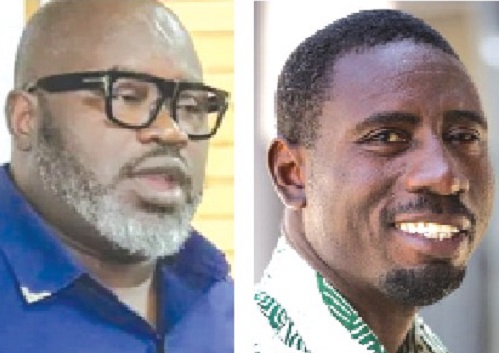
CSOs hail reset academic calendar
Two civil society organisations (CSOs) in education have hailed the return of the basic school academic calendar to the pre-COVID-19 era.
The CSOs, Africa Education Watch (Eduwatch) and Challenging Heights, in separate interviews said although the reversal was long overdue, the decision was welcome as it would enable parents, guardians and education authorities to effectively plan well unlike the post-COVID era where it was difficult to do so in view of the frequent changes.
The Ghana Education Service has revised the calendar so that the academic year starts in the last quarter of the year instead of January.
Other countries
The Executive Director of Eduwatch, Kofi Asare, said it was good that finally, the country had been able to join the other English-speaking West African countries to restore the previous academic calendar.
“In the whole of West Africa, almost every country has reset its calendar and then we are the last among Anglophone countries.
For me, it is great that we have been able to achieve that,” he said.
He said teachers would now have the certainty of planning their lives, saying the transition period between 2020 and now was like a firefighting approach “as everything was done in an adhoc manner, with teachers unable to plan their vacation, among other things”.
Mr Asare noted that the transitional calendar did not inconvenience teachers only but also parents as they were unable to plan their vacation and annual leave too, stressing that changes by the GES were announced at short notice.
“The bigger issue now is how to do the alignment with the second cycle one,” he said.
He, however, expressed the hope that the GES would work hard to do the alignment.
Evaluation
The President of Challenging Heights, James Kofi Annan, welcomed the decision to revert.
He, however, called for an evaluation mechanism to quantify the negative effect that the fast tracking might have had on the children.
“There must be the need to evaluate and get the results as to what the impact or the consequences might have been on the learning outcomes of the children.
“Also, it is important to evaluate what else might have been the cause in the process of the fast tracking to teachers, parents, school authorities and even to the children themselves,” Mr Annan said.
He said such an evaluation could help the GES and the Ministry of Education to take remedial actions that the fast tracking had been done.
Mr Annan acknowledged that COVID-19 brought untold hardship and saw the reversal as a relief, saying “once we are able to get to where we are now, we ask that teachers look at where the children have lacked and try to make up for the shortfall”.
While asking the GES to address the issue of shortage of educational items such as chairs and tables, as well as all the needed books, he also charged parents to pay attention to the educational needs of their children.
GES
The GES has reverted to the pre-COVID-19 academic calendar following the completion of the 2022 academic year last Thursday.
The first term of the 2023-2024 academic year will begin on October 3, 2023, according to the reset calendar.
“Management of the Ghana Education Service wishes to inform you that the reopening date for basic schools (kindergarten, primary and junior high schools) across the country for the first term of the 2023/2024 academic year is October 3, 2023,” a memo signed and issued by the Deputy Director-General of the GES in charge of quality and access, Dr Kwabena Bempah Tandoh, said.
The memo, addressed to all regional directors of education, stated that “this brings back the academic calendar to pre-COVID-19.”
COVID-19
On March 16, 2020, President Nana Addo Dankwa Akufo-Addo directed the closure of all schools after the country recorded its initial cases of COVID-19.
The announcement brought all academic activities to a halt, throwing the academic calendar out of gear.
Since then, the beginning of the academic year has been shifted from September/October to January.
This continued until 2022 when the GES developed a transitional timetable in an attempt to revert the academic calendar to the pre-COVID-19 era.

